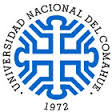Los cambios económicos de la década del 90 y la dificultad de los partidos políticos y representaciones parlamentarias para responder a las demandas de la sociedad, facilitan la incorporación en los conflictos sociales de “nuevas formas de hacer política” con actores que se van definiendo de manera novedosa, como es el caso de las mujeres. La actividad frutícola en el Alto
Valle de Río Negro y Neuquén entra en crisis en las décadas del ‘80 y ’90. La concentración económica, las desigualdades entre los distintos sectores del circuito agroindustrial y la aparición de fuertes conflictos constituyen las manifestaciones más notorias de la misma. En este contexto, el análisis de las prácticas, actividades y representaciones de las mujeres productoras que integran el Movimiento Mujeres en Lucha de Río Negro y Neuquén permite comprender el protagonismo que éstas adquieren en la lucha por sus reivindicaciones y determinar la incidencia de estas acciones en el proceso de conformación de su identidad social.
The financial changes of the 90s decade and the difficulty of political parties and parlamentarian representations to answer the society demands, facilitate the incorporation in social conflicts of ̈new ways of engaing in politics ̈ with agents that go defining themselves in a completely new way, as it is the case of women. The fruit activity in Alto Valle of Neuquén and Río Negro region starts going through a crisis in the 80s and 90s decades. The economic concentration together with the disparities between the different groups of the farming industry circuit, and the appearance of strong conflicts establish the most notorious signs of that crisis. In this context, we are interested in analisying the practises, activities and representations of women workers that belong to Rio Negro and Neuquen Women at fight Movementin order to understand the prominence that they gain in this fight thanks to their demands, and in this way determine the incidence of these actions in the process of composition of their social identity.


